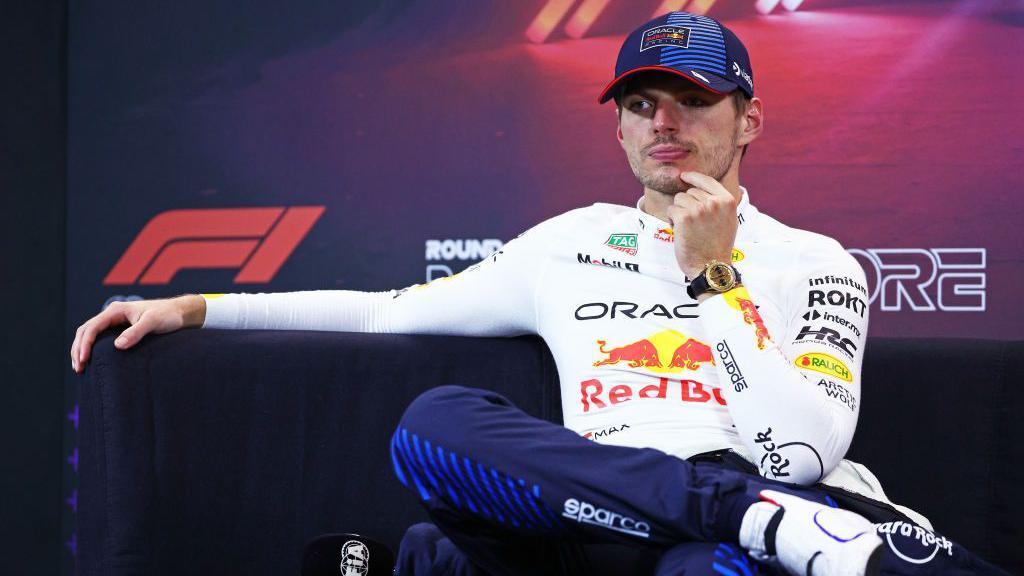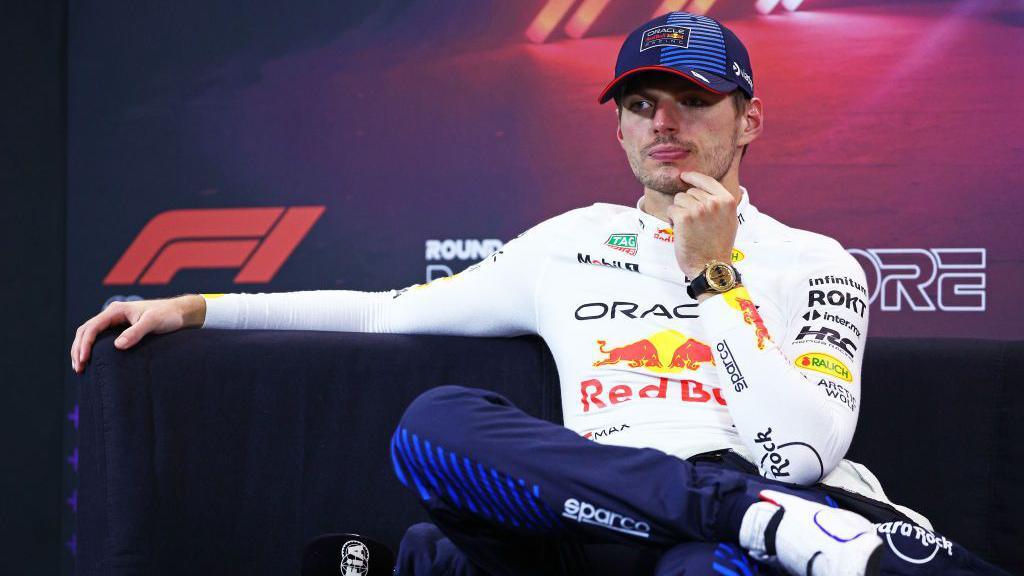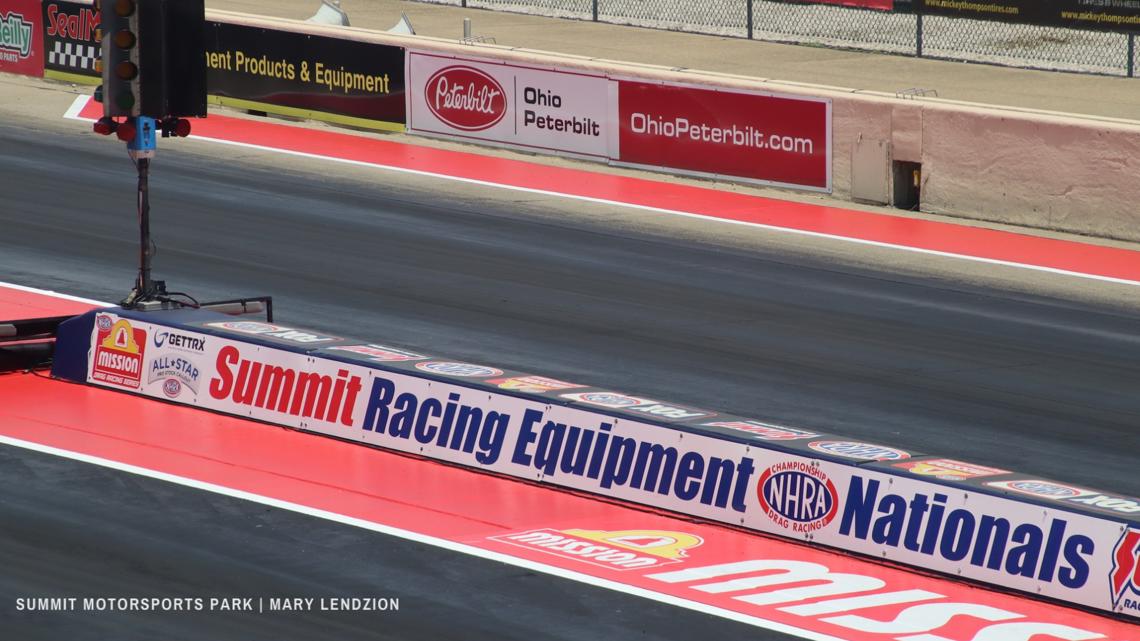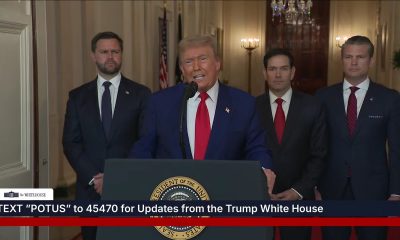Motorsports
The 'erratic' F1 rules shift that could redefine the sport — and save Verstappen's career
What should Formula 1 sound like? It’s an unusually emotional question for a sport as intensely focused on squeezing hundredths of a second out of intricately designed aerodynamics, but it’s one that could dominate the next year of paddock politics. F1 is on the cusp of perhaps its biggest ever rules shake-up, part of which […]


What should Formula 1 sound like?
It’s an unusually emotional question for a sport as intensely focused on squeezing hundredths of a second out of intricately designed aerodynamics, but it’s one that could dominate the next year of paddock politics.
F1 is on the cusp of perhaps its biggest ever rules shake-up, part of which is a brand-new engine.
Fox Sports, available on Kayo Sports, is the only place to watch every qualifying session and race in the 2025 FIA Formula One World Championship™, LIVE in 4K with no ad-breaks during racing. New to Kayo? Get your first month for just $1. Limited time offer.
But even with these expensive new regulations dawning on the 2026 horizon, FIA president Muhammed Ben Sulayem is casting his eyes beyond.
“While we look forward to the introduction of the 2026 regulations on chassis and power unit, we must also lead the way on future technological motorsport trends,” he wrote on social media in February.
“Before regulations have even started to say, ‘Let’s look at the next engine and power unit’ I just think it makes Formula 1 look a little bit erratic.
“Any challenge that comes up is fine for us, as long as there is proper governance on how this engine is being decided upon.
“That governance is in place today, so let’s stick our heads together with all the engine manufacturers and see what it is we want to have beyond 2030 and then come up with a plan that is good for Formula 1.”
Marquez crashes out from first place | 01:42
WHAT IS GOOD FOR F1 ANYWAY?
What is ‘good for Formula 1’, however, is deeply subjective.
Up to now F1 has believed that some amount of road relevance and a tangible connection to the automotive world is good for it.
That belief has led the sport down a particular path for the last decade, and it will continue down that path until at least 2028.
That time frame is interesting, particularly in the context of F1’s popularity boom in the last five years.
An entire generation of new fans — crucial to the sport’s long-term success — has never experienced the violence of a grid of V10 engines roaring off the line. It simply isn’t integral to the spectacle for them.
Consider too that F1 has become far more family oriented in that time. Would that demographic shift still have been possible were the spectacle considerably louder?
F1 must ask whether it’s worth disrupting that connection, especially given the vast majority of fans only ever watch the sport on TV anyway.
On the other hand, a big portion of the F1 ban base fondly remembers having their ribcages rattled by the visceral spectacle of F1 as it used to be.
Some in the sport still believe the impossibly loud noise of old F1 was its best marketing tool, hammering home its extreme-sport credentials.
“It’s definitely more exciting than what we have currently,” Max Verstappen said, admitting that a switch back to V10s could prolong his career.
“I’m not in charge of the rules, but of course for pure emotion of the sport, V10 is definitely much better than what we have now.
“I remember as a kid when you walk around you hear the noise of the engines. It just brings so much more.
“Even if the speed of the car was maybe slower, just the feeling you got from an engine like that is something that you can’t describe compared to what we have now.”
Lewis Hamilton’s first win for Ferrari! | 00:49
A PHILOSOPHICAL CHANGE
But the argument that might end up winning out is the philosophical one.
As the automotive world undergoes a rapid transformation and realignment, does F1 still need to work at maintaining a connection to it?
The question is particularly interesting today, with F1 more popular and lucrative than ever in its own right.
With the budget cap in place, all 10 teams are now making money — and some teams are making a lot of it via big sponsorship deals rolling into the sport.
If that money were wisely invested, the sport could make itself self-sufficient, free from the need to stay close to at least some big manufacturers for relevance.
This could be the moment F1 chooses to define itself in its own right — chooses to define what motorsport means in a changing sporting and social landscape.
Four-time world champion Sebastian Vettel is adamant that motorsport must define itself independently to survive and that synthetic fuels — carbon neutral for the way they’re made with CO2 extracted from the atmosphere — are the way to do it.
“Motorsport is our passion,” he said after taking the 1992 title-winning and synthetically fuelled Williams FW14B for a spin at Silverstone in 2022.
“It is, I think, important to find a way that we can do it responsibly in the future as well, to keep these cars and the history alive.
“You can express culture in many ways — music, arts — but our sort of culture, our way of expressing ourselves, is driving cars, racing cars, and it would be a shame if that if that was all to disappear.
“I think it’s a way to keep it alive.”
The timing and format of F1’s next engine is far more than an exercise in rule-making or technical regulation.
It’s fundamental to its future.
Motorsports
19th Annual Summit Racing Equipment NHRA Nationals June 26-29 in Norwalk
The four-day event is part of the Mission Foods NHRA Drag Racing Series. NORWALK, Ohio — The 19th Annual Summit Racing Equipment NHRA Nationals is set to bring high-speed action to Summit Motorsports Park in Norwalk from June 26-29. The four-day event is part of the Mission Foods NHRA Drag Racing Series and features competition […]

The four-day event is part of the Mission Foods NHRA Drag Racing Series.
NORWALK, Ohio — The 19th Annual Summit Racing Equipment NHRA Nationals is set to bring high-speed action to Summit Motorsports Park in Norwalk from June 26-29.
The four-day event is part of the Mission Foods NHRA Drag Racing Series and features competition across several major categories, including Top Fuel, Funny Car, Pro Stock and Pro Stock Motorcycle. Additional classes include the Flexjet NHRA Factory Stock Showdown, Holley EFI NHRA Factory X, and the GETTRX Pro Stock NHRA All-Star Callout.
Racing began Thursday with sportsman qualifying. Professional qualifying is taking place Friday and continues into Saturday.
Final eliminations and championship rounds are scheduled for Sunday, following driver introductions and pre-race festivities.
Fans can also access the pit area throughout the weekend, where teams work on vehicles between rounds.
Premium ticket options are available through the Top Eliminator Club, which includes seating and meals. General tickets are on sale now through Summit Motorsports Park’s website or by calling 419-668-5555.
More information can be found HERE.
Motorsports
MLB, NASCAR stars talk legends of Bristol | News, Sports, Jobs
By Teresa M. Walker AP Sports Writer NASCAR driver Ricky Stenhouse Jr. advises the Cincinnati Reds and Atlanta Braves to watch a couple of night races at Bristol Motor Speedway before the Speedway Classic. Once at the racetrack, he recommends a walk up the banked walls to truly appreciate the half-mile bullring. MLB’s Speedway Classic […]

By Teresa M. Walker
AP Sports Writer
NASCAR driver Ricky Stenhouse Jr. advises the Cincinnati Reds and Atlanta Braves to watch a couple of night races at Bristol Motor Speedway before the Speedway Classic. Once at the racetrack, he recommends a walk up the banked walls to truly appreciate the half-mile bullring.
MLB’s Speedway Classic on Aug. 2 means either the Reds or Braves will win at Bristol before Stenhouse reaches victory lane at his favorite track. He still plans to watch as they play an MLB game on a ballpark built inside the Bristol infield.
“Hopefully, if they get one over the wall, kind of see where that ball ends up landing,” Stenhouse said of the track where going over the wall usually means injuries and ambulances. “But, yeah, just a really cool venue and something that I’ll be looking forward to watching.”
Two-time Daytona 500 winner Michael Waltrip, now a Fox racing analyst, said search his 1990 crash where his car disintegrated after hitting a wall to learn how challenging Bristol can be.
He joined Stenhouse, former Braves centerfielder Andruw Jones, 2009 World Series champ Nick Swisher and three-time All-Star Reds first baseman and now MLB Network analyst Sean Casey in promoting the first MLB game in the state of Tennessee.
Waltrip said the banking of the track has to be seen to be believed and is a big part of its intensity.
“The banking is straight up,” Waltrip said. “You can barely climb up it, and it’s condensed down to a half-mile track. So you’re just constantly in the corners and speeds upwards of 150 miles an hour. It’s just crazy how precise and how technical you have to be to be successful there.”
Trying to hit a baseball might be a bit easier than stepping into a racecar at Bristol. At those speeds, Stenhouse said he forgot to breathe for 10 laps his first time there.
Bristol still has tickets available for an event that will feature a pregame concert with Tim McGraw and Pitbull. A fan zone outside the track will feature more music, a 110-foot Ferris wheel, a food truck row, pitching tunnels and batting cages and team mascots.
“It’s going to be one of those special nights that goes down in history,” said Jerry Caldwell, president of Bristol Motor Speedway. “People are going to want to be there and want to be a part of it or tune in on Fox and take in this event.”
Casey played in a March 2008 exhibition between the Red Sox and Dodgers at Los Angeles Coliseum that drew 115,300 for the largest crowd ever to see a baseball game. Casey said this crossover gives baseball fans a reason to check out Bristol and NASCAR fans the chance to see something different.
Players like Reds shortstop Elly De La Cruz and Atlanta outfielder Ronald Acuña Jr. will get an experience to remember.
“These guys that are going to be able to have that memory of playing at Bristol, it’s going to be a one of a kind thing,” Casey said.
Stenhouse said he played some wiffle ball during the last stop in Bristol. NASCAR will be in Iowa with a Cup race Aug. 3, but he hopes to sneak over from his North Carolina home for a chance to hit some hard balls over the fence at Bristol — or pitch off the mound.
“I hit a wiffle ball over the fence,” Stenhouse said. “Yeah, it would be cool to get there and take the field in all at the same time.”
Motorsports
Joey Logano earns $1 million bonus through new NASCAR program
Three-time Cup champion Joey Logano claimed a $1 million bonus for ranking first among Cup drivers in NASCAR’s new Driver Ambassador Program. Sports Business Journal first reported the award. Kyle Busch has finished in the top 10 in all five races at Atlanta with Richard Childress Racing. The program rewards drivers for promoting the sport […]

Three-time Cup champion Joey Logano claimed a $1 million bonus for ranking first among Cup drivers in NASCAR’s new Driver Ambassador Program.
Sports Business Journal first reported the award.

Kyle Busch has finished in the top 10 in all five races at Atlanta with Richard Childress Racing.
The program rewards drivers for promoting the sport in multiple ways. Drivers are awarded points based on how much they promote the sport, such as in interviews and appearances. The quality of the appearances is a factor along with a driver’s standing in the sport. Former champions earn extra points.
The year is divided into two terms. The first term concluded last weekend at Pocono.
The second term goes beyond the end of the season. The top driver each term is paid $1 million. The driver in last in each term receives about $7,500, according to Sports Business Journal.

T.J. Puchyr, a former owner in Spire Motorsports, has entered an agreement to purchase the NASCAR team owned by Rick Ware.
NASCAR confirmed the top three drivers for the just-completed term was Logano, Kyle Larson and Ryan Blaney.
Sports Business Journal reported that the rest of the top 10 was Ross Chastain (fourth), Daniel Suarez (fifth), Chase Elliott (sixth), William Byron (seventh), Kyle Busch (eighth), Austin Dillon (ninth) and Chase Briscoe (10th).
The money for the drivers comes from the new media rights deal, Sports Business Journal reported.
Motorsports
GR Yaris line-up expands with new motorsports-inspired Aero Performance grade
TOYOTA GAZOO Racing has introduced the new GR Yaris Aero Performance grade which features aerodynamic dedicated updates derived directly through motorsports participation. The GR Yaris is a high-performance hatchback genuinely born in motorsports, having been inspired by the winning combination of power, poise and precise control of the GR YARIS Rally1 competition car which competes […]

TOYOTA GAZOO Racing has introduced the new GR Yaris Aero Performance grade which features aerodynamic dedicated updates derived directly through motorsports participation.
 The GR Yaris is a high-performance hatchback genuinely born in motorsports, having been inspired by the winning combination of power, poise and precise control of the GR YARIS Rally1 competition car which competes in the FIA World Rally Championship (WRC). Fittingly, the new GR Yaris Aero Performance grade makes its European public debut via a display at the Acropolis Rally in Greece, round seven of the 2025 WRC season on 26-29 June. It will also be present at the Goodwood Festival of Speed on 10-13 July, participating in the hill climb competition.
The GR Yaris is a high-performance hatchback genuinely born in motorsports, having been inspired by the winning combination of power, poise and precise control of the GR YARIS Rally1 competition car which competes in the FIA World Rally Championship (WRC). Fittingly, the new GR Yaris Aero Performance grade makes its European public debut via a display at the Acropolis Rally in Greece, round seven of the 2025 WRC season on 26-29 June. It will also be present at the Goodwood Festival of Speed on 10-13 July, participating in the hill climb competition.
TOYOTA GAZOO Racing’s commitment to making ever-better cars through motorsports, by analysing driving data, reviewing direct feedback from drivers and examining damaged parts in detail, has driven a constant enhancement of the GR Yaris since its 2020 launch.
The new Aero Performance grade is a result of that philosophy, and it features six performance aerodynamic parts that were developed through an uncompromising approach to achieving targeted performance by addressing every issue. Through competition driving, improvement areas were identified and fine-tuned with the contribution of professional drivers.
A new large cooling duct and grille on the aluminium bonnet shares its contoured shape with the carbon-fibre bonnet of the GRMN Yaris. During high-speed driving it improves cooling by discharging heat from the engine compartment. It was developed and proven in the Japanese Rally Championship.
Racing in Super Taikyu helped to achieve a higher level of aerodynamic balance using a front lip spoiler, which suppresses front lift to improve the vehicle’s overall lift balance and enhance grip. The spoiler was added to the GR Yaris Aero Performance after being developed with professional racer Kazuya Oshima, a race-winning driver who competes with Rookie Racing in Japan’s Super Formula, Super GT and Super Taikyu championships.
A large, variable rear spoiler contributes to high-speed handling as well as braking stability. Its angle can be manually adjusted to suit different circumstances, for example prior to circuit driving, for an even more enjoyable experience.
A new floor undercover draws inspiration from the flat bottom of the fuel tank used in Super Taikyu to optimise underbody airflow and further improve aerodynamic performance.
New fender ducts, located between the front wheel and the door, release rearward air that accumulates in the front wheelhouse. This improves the steering feel under heavy braking and enhances handling stability at corner entry.
Ducts on each side of the rear bumper decrease the drag coefficient by allowing smoother airflow under the car. They were developed via the uniquely harsh environment of motorsports in response to a scenario encountered by a GR Yaris in Super Taikyu, when a rear bumper was detached by aerodynamic loads.
The GR Yaris Aero Performance grade is available to order in Europe in autumn 2025
Motorsports
Toyota to display its finest race, rally and road machines at the Goodwood Festival of Speed
The formidable GR DKR Hilux EVO will be demonstrating the power and strength of a machine that has proved a top contender in the challenging arena of the World Rally-Raid Championship (W2RC), including the legendary Dakar Rally. The power, speed and handling of these machines will be demonstrated by some of the world’s finest […]

 The formidable GR DKR Hilux EVO will be demonstrating the power and strength of a machine that has proved a top contender in the challenging arena of the World Rally-Raid Championship (W2RC), including the legendary Dakar Rally.
The formidable GR DKR Hilux EVO will be demonstrating the power and strength of a machine that has proved a top contender in the challenging arena of the World Rally-Raid Championship (W2RC), including the legendary Dakar Rally.
The power, speed and handling of these machines will be demonstrated by some of the world’s finest drivers. The driver line-up includes the hottest championship talents, such as current WRC leader Elfyn Evans, youngest ever champion Kalle Rovanperä, Japanese star Takamoto Katsuta and newcomer Sami Pajari, together with TOYOTA GAZOO Racing World Rally Team principal Jari-Matti Latvala, rally legend and Deputy Team principal Juha Kankkunen and Seth Quintero, the young trailblazer in W2RC. They will be joined by other drivers drawn from the highest level of international motorsport.
 The potential future of World Endurance Championship engineering will be represented by the static display of the new liquid hydrogen-fuelled GR LH2 Racing Concept. This study for a race car is based on TGR’s current GR010 Hybrid hypercar and if fitted with a hydrogen combustion engine. It will travel to the festival after being unveiled for the first time at this year’s Le Mans 24 Hours in June.
The potential future of World Endurance Championship engineering will be represented by the static display of the new liquid hydrogen-fuelled GR LH2 Racing Concept. This study for a race car is based on TGR’s current GR010 Hybrid hypercar and if fitted with a hydrogen combustion engine. It will travel to the festival after being unveiled for the first time at this year’s Le Mans 24 Hours in June.
 The GR Yaris Aero Performance will be making its first appearance on the festival hillclimb, a development of the universally acclaimed GR Yaris that is a perfect example of Toyota’s use of motorsport know-how in the creation of exciting road cars. The application of a “driver-first” approach and learnings gained on the test track and in competition have produced eye-catching, high-performance aerodynamic updates that are brought together in a special aero package customers will be able to specify for their car. It comprises an adjustable rear wing, new front fender ducts, a front lip spoiler, rear floor cover additional vents in the lower rear bumper and a motorsports-style vent on the bonnet.
The GR Yaris Aero Performance will be making its first appearance on the festival hillclimb, a development of the universally acclaimed GR Yaris that is a perfect example of Toyota’s use of motorsport know-how in the creation of exciting road cars. The application of a “driver-first” approach and learnings gained on the test track and in competition have produced eye-catching, high-performance aerodynamic updates that are brought together in a special aero package customers will be able to specify for their car. It comprises an adjustable rear wing, new front fender ducts, a front lip spoiler, rear floor cover additional vents in the lower rear bumper and a motorsports-style vent on the bonnet.
In motorsport as in its road-going vehicles, Toyota applies its multi-pathway strategy for reducing carbon emissions through a range of technologies, progressing towards carbon neutrality. As well as using carbon neutral fuels in its race cars, the company is also actively exploring the potential of hydrogen fuel. In addition to the GR LH2 Racing Concept, the festival will feature the British-built Hydrogen Fuel Cell Hilux prototype. This advanced version of the legendary pick-up will be working alongside the full hybrid Corolla Commercial – also built in the UK – as a support vehicle.
The famous Celica name will return to the festival, in the form of the classic ST185 rally car. The all-wheel drive ST185 was famously driven by Juha Kankkunen to championship-winning success in 1993. Today, an example is campaigned by Jari-Matti Latvala in the FIA Historic Rally Championship, finished in a striking TGR livery.
Motorsports
NHRA races into Ohio | News, Sports, Jobs
NORWALK — Always a highlight of the season for every driver in the NHRA’s premier series, this weekend’s 19th annual Summit Racing Equipment NHRA Nationals at Summit Motorsports Park represents a great opportunity for Top Fuel’s Josh Hart. The standout has made solid improvements in his 12,000-horsepower R+L Carriers dragster and Hart would love nothing […]
NORWALK — Always a highlight of the season for every driver in the NHRA’s premier series, this weekend’s 19th annual Summit Racing Equipment NHRA Nationals at Summit Motorsports Park represents a great opportunity for Top Fuel’s Josh Hart.
The standout has made solid improvements in his 12,000-horsepower R+L Carriers dragster and Hart would love nothing more than to pick up his first win of the season as the NHRA season hits the halfway point.
He’s had success in Norwalk, advancing to the final round in 2022, and with a massive R+L Carriers location directly across the street from Summit Motorsports Park, a win would mark a special moment for Hart and his team.
It’s also a busy weekend for the two-time Top Fuel event winner, as he’ll be racing in the NHRA Factory Stock Showdown category. But Hart has embraced the double-duty and is ready for the Top Fuel team to make another big move this weekend in Norwalk.
“I would like to get back to the feeling we had in 2022 (in Norwalk) when we were on a roll and then a storm came through and flipped the track conditions,” Hart said. “That was a strong weekend for this team, and I think we can get back to that kind of performance. This sport is humbling but I also think it rewards hard work. This R+L Carriers team has been really working hard, and I am looking forward to seeing positive results in Norwalk.
“We have been coming off the trailer and making good runs on Friday, which is critical. If you can get ahead of the track on Friday it sets you up for success. This past weekend (in Richmond), the track chewed us up and spit us out on Saturday and Sunday. We are not going to hang our heads. We are getting back to work even though this is back-to-back races.”
In 2024, Antron Brown (Top Fuel), Bob Tasca III (Funny Car), Aaron Stanfield (Pro Stock), and Gaige Herrera (Pro Stock Motorcycle) all won at a race that will again be broadcast on FOX and FS1 in 2025, including eliminations coverage beginning at 2 p.m. Sunday on FOX.
It is the 10th of 20 races during the NHRA season and the race in Norwalk is annually one of the premier stops on the NHRA tour. The packed weekend includes two rounds of qualifying at 5 p.m. and 7:30 p.m. Friday, including a must-see night session and fireworks, two rounds of qualifying — and the Mission #2Fast2Tasty Challenge — on Saturday and eliminations on Sunday.
This year’s event promises even more excitement, as the Summit Racing Equipment NHRA Nationals plays host to the Pro Stock NHRA All-Star Callout for the first time. This specialty event will feature eight Pro Stock drivers battling for top honors.
The Pro Stock NHRA All-Star Callout field features reigning six-time champion Greg Anderson, who will have the first pick of the eight-car field made up of Dallas Glenn, Matt Hartford, standout Aaron Stanfield, multi-time champions Erica Enders and Jeg Coughlin, Eric Latino and Troy Coughlin Jr.
For Hart, the double-duty keeps him focused and he’s ready to thrive in Norwalk. He’s picked up round wins in Top Fuel at five of the past seven races, but advancing to the semifinals and beyond is the next goal. It’s never easy in the loaded Top Fuel ranks, a group that includes points leader and racing legend Tony Stewart, Shawn Langdon, Justin Ashley, reigning world champ Antron Brown, Brittany Force and Clay Millican.
But Hart is ready for that challenge, as well as the busy responsibility of driving in two separate classes in one weekend.
“When I have both cars on the track it makes for a busy and fun weekend,” said Hart, who is ninth in Top Fuel points. “I am blessed to be able to have this opportunity, and I want to thank everyone at R+L Carriers and Burnyzz Speed Shop for the support they provide both my teams. David Davies and his DHDR team keep us on track in Flexjet Factory Stock Showdown so that is a big plus. These are the races that really make me feel fortunate.”
-

 Motorsports2 weeks ago
Motorsports2 weeks agoNASCAR Weekend Preview: Autódromo Hermanos Rodríguez
-

 Motorsports2 weeks ago
Motorsports2 weeks agoNASCAR Through the Gears: Denny Hamlin has gas, a border needs crossing, and yes, that’s a Hemi
-

 Motorsports2 weeks ago
Motorsports2 weeks agoNASCAR Race Today: Mexico City start times, schedule and how to watch live on TV
-

 High School Sports3 weeks ago
High School Sports3 weeks agoHighlights of the Tony Awards
-

 Health2 weeks ago
Health2 weeks agoGymnast MyKayla Skinner Claims Simone Biles 'Belittled and Ostracized' Her amid Riley …
-

 Professional Sports3 weeks ago
Professional Sports3 weeks agoUFC 316
-

 Sports2 weeks ago
Sports2 weeks agoCoco Gauff, The World's Highest
-

 NIL2 weeks ago
NIL2 weeks agoTennessee law supersedes NCAA eligibility rule
-

 College Sports3 weeks ago
College Sports3 weeks agoFisk to discontinue history-making gymnastics program after 2026 | Area colleges
-

 Health3 weeks ago
Health3 weeks agoOlympic great Simone Biles shares mental health journey on first Hong Kong visit

































































